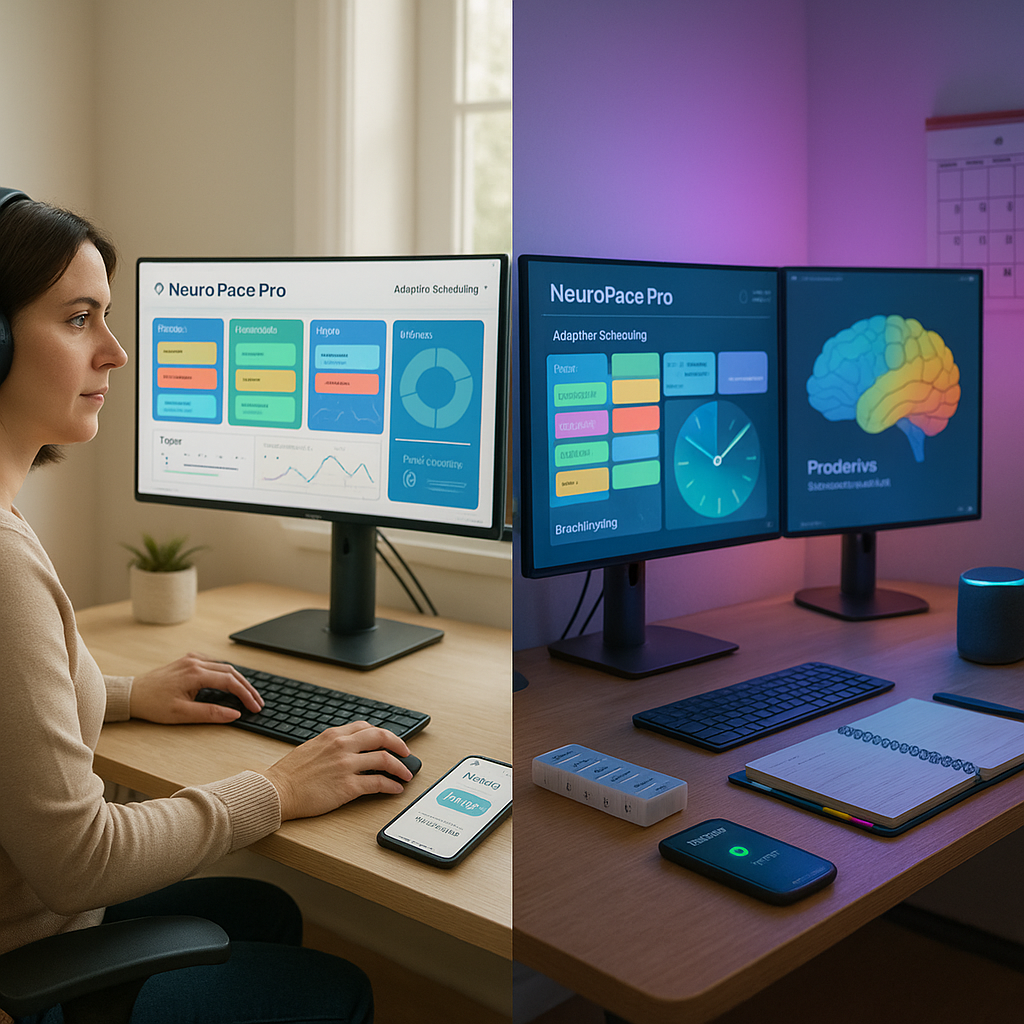Key Takeaways
- Diagnosis as Catalyst: More adults are discovering that an official ADHD diagnosis can lead to stronger self-awareness and personal growth.
- Neurodivergence Drives Innovation: ADHD tendencies such as hyperfocus, creativity, and adaptability are reframed as key entrepreneurial assets.
- AI and Automation Empowerment: Integrating AI assistants and automation tools helps ADHD entrepreneurs turn chaos into efficiency, reducing burnout.
- From Struggle to Story: Lived experience, including embracing quirks and setbacks, fosters authentic business leadership and community impact.
- Moving Forward: ADHDink plans to expand its offering of content, tools, and consulting to equip more neurodivergent professionals to thrive.
Introduction
A surge in adult ADHD diagnoses is reshaping the business landscape as entrepreneurs and professionals transform longstanding challenges into unique strengths through self-awareness and purposeful technology. ADHDink demonstrates that embracing neurodivergence, supported by AI workflows and authentic storytelling, fuels innovation, resilience, and sustainable growth for founders building businesses on their own terms.
The Rising Wave of Adult ADHD Diagnoses
Adult ADHD diagnoses have risen by 42% since 2019, according to the American Psychiatric Association. This increase reflects growing awareness and reduced stigma around neurodivergence, rather than an actual epidemic.
Women and professionals over 30 are seeing the fastest increase in diagnoses. Many only discover their ADHD after years spent using complex compensatory strategies to navigate traditional work environments.
Tara Rodriguez, a 34-year-old marketing executive diagnosed last year, stated that learning about ADHD clarified longstanding patterns she had struggled to understand.
“I spent years thinking I was just bad at focusing or lazy when deadlines approached,” she said.
The diagnostic process has evolved, with telehealth options making assessments more accessible to busy professionals who might otherwise remain unidentified.
The Entrepreneurial ADHD Brain
Research from the University of California indicates that individuals with ADHD are 300% more likely to start their own businesses than neurotypical peers. This entrepreneurial spirit arises from neurological differences that offer distinct advantages.
Hyperfocus, often misunderstood as the opposite of ADHD, enables entrepreneurs to work intensively on projects that ignite their interest. This capability commonly leads to breakthrough innovation and problem-solving that can surpass competitors.
ADHD-related risk tolerance contributes to comfort with uncertainty, a key trait for entrepreneurs. While some overthink potential problems, many ADHD founders quickly move forward with bold ideas that drive growth.
Jason Kim, founder of tech startup NeuroFlow, explained that his ADHD helps him avoid analysis paralysis, make swift decisions, and pivot without focusing on hypothetical failures.
From Diagnosis to Business Advantage
Receiving an ADHD diagnosis often initiates a significant identity shift for entrepreneurs who previously absorbed negative beliefs about their working styles. This shift can unlock new professional performance levels.
The post-diagnosis journey usually starts with education and understanding how executive function challenges affect planning, time management, and initiating tasks. With this insight, entrepreneurs can design workflows that fit their neurological wiring.
Eliza Fernandez, who built a seven-figure consulting practice after her diagnosis at 36, said,
“My biggest breakthroughs came after I stopped forcing myself into productivity systems designed for neurotypical people. I built my company around my brain, not despite it.”
Strategic delegation becomes powerful for ADHD entrepreneurs who recognize when tasks do not align with their strengths. Outsourcing detailed administrative work frees up cognitive capacity for big-picture thinking.
Founder Story: Alex Chen’s ADHD Transformation
Alex Chen founded ADHDink after receiving his diagnosis at 32 and realizing that traditional productivity advice did not address his brain’s unique needs. His transition from a struggling corporate employee to successful entrepreneur demonstrates the potential within neurodivergent minds.
Chen shared that the diagnosis helped him understand he was not broken but required different systems. He left his corporate role, experimenting with workflows tailored for ADHD brains and prioritizing energy-based planning rather than rigid schedules.
This new self-awareness changed both his productivity and business model. Chen identified a demand for ADHD-friendly business coaching and tools that leverage neurodivergent strengths instead of aiming to “fix” them.
Tools and Strategies for the ADHD Entrepreneur
Technology provides effective solutions for ADHD entrepreneurs aware of their specific needs. Visual project management platforms such as Trello and Asana offer necessary external structure for complex planning.
Automation plays a crucial role in handling repetitive tasks that can be challenging for the ADHD brain’s reward system. Email filters, scheduling software, and CRM automation reduce friction points where entrepreneurs might lose momentum.
Marketing consultant Maya Johnson credits her success to building a workflow that reduces decision fatigue. Automating routine tasks helps her reserve executive function for creativity and strategy, where her ADHD is an advantage.
Time blindness, or difficulty perceiving time, affects many ADHD entrepreneurs. Tools such as time-tracking apps and visual timers provide external accountability, compensating for this neurological challenge without demanding constant willpower.
Leveraging Hyperfocus for Business Growth
Hyperfocus, often seen as an ADHD paradox, represents a powerful competitive advantage for neurodivergent entrepreneurs. When properly harnessed, it drives extraordinary productivity and innovation.
Successful ADHD business owners design their schedules to allow for spontaneous hyperfocus periods rather than resisting them. This could mean protecting several uninterrupted hours during bursts of inspiration instead of following inflexible routines.
Software developer Raj Patel emphasizes the importance of recognizing and protecting hyperfocus time. In his experience,
a few hours of hyperfocused work can outperform several days of forced attention.
Strategic planning helps entrepreneurs align hyperfocus with business priorities. By creating environments that encourage this state on high-value tasks, they can maximize the impact of their neurological strengths.
Building a Neurodivergent-Friendly Company Culture
ADHD entrepreneurs often develop company cultures that accommodate diverse thinking styles, resulting in more innovative organizations. These neuroinclusive environments prioritize results-based evaluation rather than outdated productivity metrics.
Flexible arrangements such as remote work, unconventional hours, and outcome-focused accountability benefit all employees and remove unnecessary barriers for neurodivergent team members. This approach generally improves retention and attracts talent seeking psychological safety.
Leila Washington, founder of Neurodiverse Creative, explained that her company measures by outcomes, not hours, and supports various cognitive styles with tailored processes.
Communication in neurodivergent-led organizations usually emphasizes directness and clarity, decreasing the cognitive burden of workplace politics. This transparent method increases efficiency and lessens stress for all team members.
Conclusion
The increase in adult ADHD diagnoses is transforming the way entrepreneurs approach work, elevating strengths like hyperfocus, creative problem-solving, and flexible thinking. As more founders intentionally design businesses around neurodivergent minds, ADHD traits are reframed as genuine assets in leadership and innovation. Looking ahead, the expansion of ADHDink’s resources and community signals continued momentum for neurodivergent professionals seeking to thrive on their own terms.





Leave a Reply